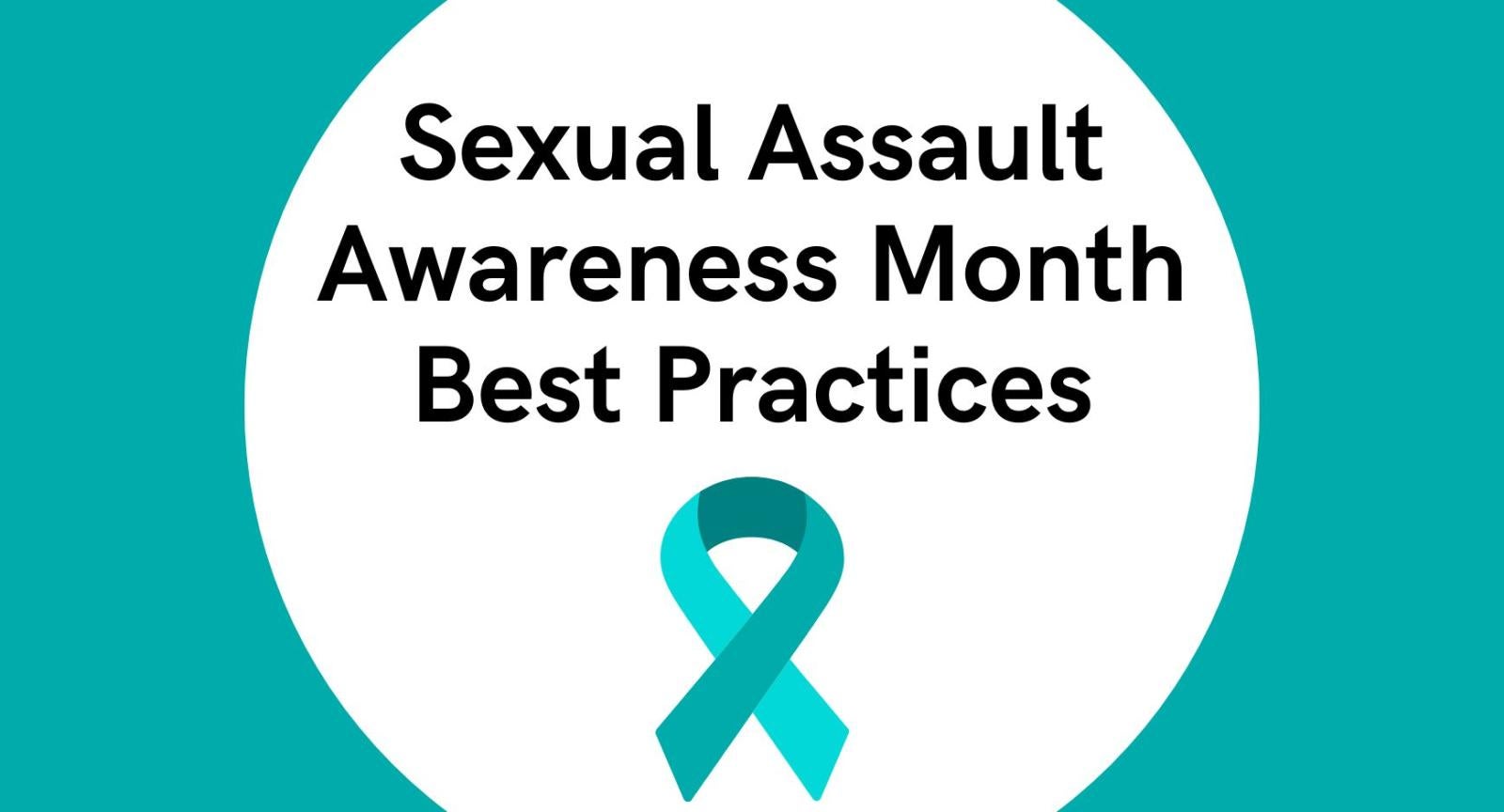
April is Sexual Assault Awareness Month (SAAM). This is a time when people come together to raise awareness and promote the prevention of sexual assault. It is also a time for survivors to share their stories and seek support. Sexual assault is a devastating crime affecting millions of people every year, regardless of gender, age, or background. Sexual assault can happen to anyone. This blog post will discuss some best practices for Sexual Assault Awareness Month.
Educate Yourself
The first step in promoting sexual assault awareness is educating yourself. Take the time to read articles, watch videos, and attend workshops on the topic. This will help you better understand the issue and how it affects people.
- Rape, Abuse & Incest National Network (RAINN): Know the Facts and learn more about laws in Texas
- UT Austin's Title IX: Tips for Prevention
Speak Out
Use your voice to speak out against sexual assault. This can be as simple as sharing information on social media or as involved as organizing a rally or protest. No matter how you speak out, ensure your message is clear and consistent.Support Survivors
Survivors of sexual assault need support and validation. Offer to listen to their stories, provide resources, or simply be there as a friend. It is important to remember that everyone's healing process is different, and survivors may need time to feel comfortable opening up.
- UT Austin's Title IX office offers strategies on how to Support a Survivor here
- VAV offers additional strategies on how staff, faculty, partners, and friends can support a survivor here
Challenge Victim-Blaming
Victim-blaming is a harmful practice that places the responsibility for sexual assault on the survivor. This is untrue and reinforces a culture of rape and violence. Challenge victim-blaming by calling out harmful language or behaviors, and holding people accountable for their actions.
- Learn about the dangers of victim-blaming and ways to avoid it here
Advocate for Policy Change
Policy change is an integral part of preventing sexual assault. Advocate for policies that promote education, prevention, and support for survivors. This can include lobbying for increased funding for sexual assault services or pushing for stronger laws that hold perpetrators accountable. University employees can do this on their own time as long as they follow the policy and guidelines described in HOP 5-2055.
- Learn about the policy work the Texas Associate Against Sexual Assault (TAASA) is doing here
Donate
Many organizations work tirelessly to prevent sexual assault and support survivors. Consider donating to a local or national organization that aligns with your values and goals.
Take Care of Yourself
Sexual assault awareness can be emotionally taxing, especially for survivors or those with personal connections to the issue. It is important to prioritize self-care and seek support if needed. This can include talking to a therapist, engaging in self-care activities, or finding a support group.
UT Campus Community Resources:
- Counseling and Mental Health Center (CMHC) Voices Against Violence (VAV): https://www.cmhc.utexas.edu/vav/vav_sexualviolence.html
- Employee Assistance Program (EAP): https://eap.utexas.edu/counseling-consultations
- Longhorn Wellness Center: https://www.healthyhorns.utexas.edu/healthpromotion.html
- Victims Advocate Network (VAN): https://police.utexas.edu/services/victims-advocate-network
Austin Area Community Resources:
- Asian Family Support Services of Austin: https://www.afssaustin.org/
- Legal Aid for Survivors of Sexual Assault: https://lassatexas.org/
- SAFE: https://www.safeaustin.org/our-services/
- Texas Associate Against Sexual Assault: https://www.taasa.org/
- Texas Advocacy Project: https://www.texasadvocacyproject.org/
Locations that perform free Sexual Assault Nursing Exams (SANE):
- Eloise House: Forensic Nursing Exams and Rape Kits: https://www.safeaustin.org/our-services/face-to-face-support/forensic-nursing-exams/
- UT University Health Services: https://www.healthyhorns.utexas.edu/uhs/sexual-assault.html
- Local Hospitals also offer free SANE Examinations. However, if a victim goes to a facility that does not have a SANE, that facility must offer to transfer the victim to the nearest SANE facility. To find out which local emergency rooms have SANEs, contact your nearest rape crisis center. To find a crisis center in your area, visit the Crisis Center Locator provided by TAASA. **If you are at least 18 years old, you do not have to report the sexual assault to the police to receive a sexual assault exam.
Additional Resources:
- Technology & Sexual Assault
- Victim and Survivor Resources
- How to Create a Trauma-Informed Workplace
- A Survivor's Guide to Understanding Therapeutic Healing Pathways
In conclusion, Sexual Assault Awareness Month is an important time to promote prevention, support survivors, and challenge harmful attitudes and behaviors. By educating ourselves, speaking out, supporting survivors, challenging victim-blaming, advocating for policy change, and caring for ourselves, we can create a safer and more supportive world for all.
